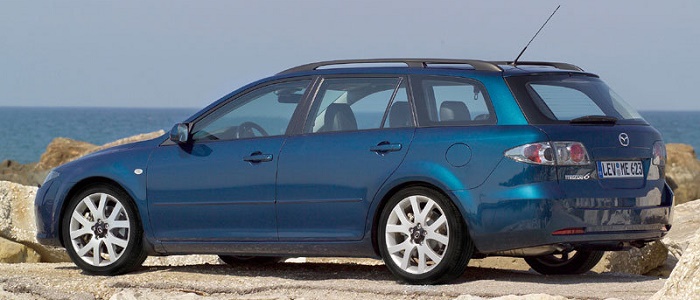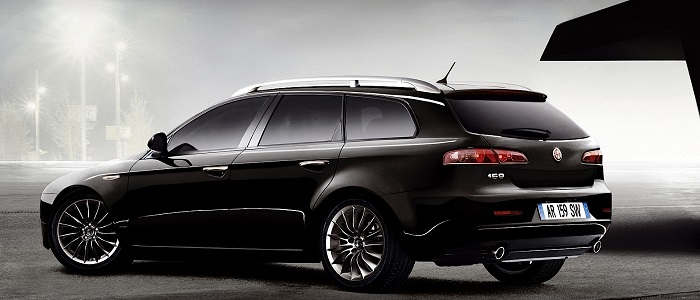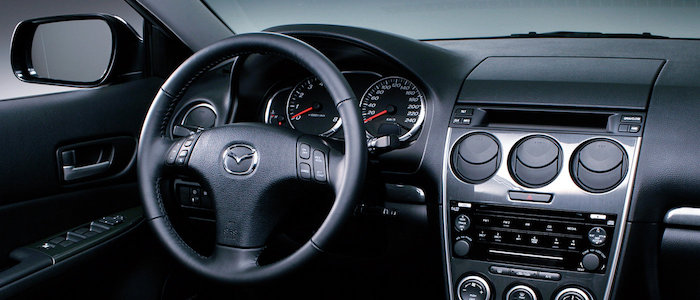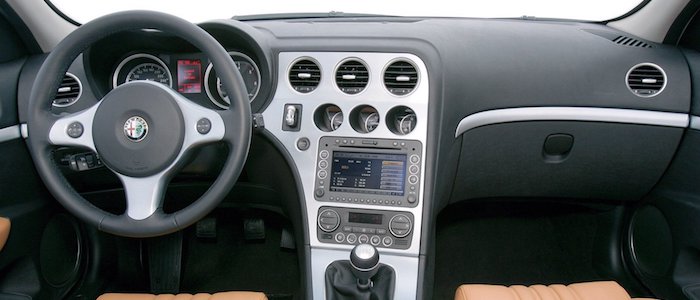Compare two cars
Compare any two cars and get our Virtual Adviser™ opinion
Marketing
Dimensons & Outlines
Engine
Performance (manual gearbox)
Performance (automatic gearbox)
Expenses
Virtual Adviser's™ opinion
Well, these are two pretty similar cars we have here! It's only details that could potentially make the difference. Considering they both belong to the large family car segment and utilize the same 5-door wagon body style and the front wheel drive system, it all comes up to the specific petrol engine choice they offer. The first one has a Mazda-engineered powertrain under the hood, a 4-cylinder, 16-valves 145hp unit, while the other one gets its power and torque from a 4-cylinder, 16-valves 160hp engine designed by Alfa Romeo.
SafetyThe first thing to look into here would be the results from European New Car Assessment Programme (Euro NCAP) tests performed on the two cars. Good thing is that both vehicles got tested, with the Alfa Romeo being a slightly better choice apparently. Moving further on, let's take a closer look at some additional safety-related facts. Both vehicles belong to the large family car segment, which is generally a good thing safety-wise, but that fact doesn't break the tie between the two cars. On the other hand, taking kerb weight as an important factor into account, the Italian car offers a considerable difference of 12% more metal.
ReliabilityI don't like generalizing things when it comes to reliability, although it does seem that Mazda is significantly less fault-prone, when all the models are taken into account. That's the official data, while our visitors describe reliability of Mazda with an average rating of 4.4, and models under the Alfa Romeo badge with 4.2 out of 5. The same official information place 6 as average reliability-wise, and 159 is more or less at the same level.Above it all, drivers of cars with the same engine as the Japanese car rank it on average as 4.2, while the one under the competitor's bonnet gets 4.0 out of 5.
Performance & Fuel economyBoth of the cars accelerate exactly the same, so we couldn't put one above the other. Car No. 2 is faster though, reaching top speed of 210 kilometers per hour, 4km/h more than the other car. When it comes to fuel economy the winner has to be the Japanese car, averaging around 8 liters of fuel per 100 kilometers (35 mpg), in combined cycle. We can't ignore that 10% difference compared to the Italian car.
Verdict
Mazda appears just a bit more reliable, although the difference is truly marginal. The most important thing when deciding between any two vehicles should always be safety, both passive and active. In my opinion, everything taken into account, the Italian car beats the other contender by far, making it the best choice without even considering other things. When it comes to performance, both vehicles provide similar experience, so I wouldn't point any of them out. the Japanese car , on the other hand, consumps significantly less fuel, and that's a big plus. It's really tough to make a final decision here, but if I'd need to, I'd say Mazda. Anyway, that's the most objective conclusion I could've came up with and it's based solely on the information found on this website. Aspects such as design, practicality, brand value and driving experience are there for you to measure them out. I suggest you spend two more minutes in order to find out which car, based on your needs and budget, would be picked by the virtual adviser™, out of 12.000+ vehicles we currently have in our database.































